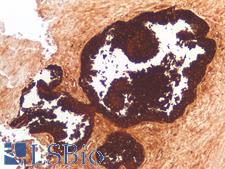Login
Registration enables users to use special features of this website, such as past
order histories, retained contact details for faster checkout, review submissions, and special promotions.
order histories, retained contact details for faster checkout, review submissions, and special promotions.
Forgot password?
Registration enables users to use special features of this website, such as past
order histories, retained contact details for faster checkout, review submissions, and special promotions.
order histories, retained contact details for faster checkout, review submissions, and special promotions.
Quick Order
Products
Antibodies
ELISA and Assay Kits
Research Areas
Infectious Disease
Resources
Purchasing
Reference Material
Contact Us
Location
Corporate Headquarters
Vector Laboratories, Inc.
6737 Mowry Ave
Newark, CA 94560
United States
Telephone Numbers
Customer Service: (800) 227-6666 / (650) 697-3600
Contact Us
Additional Contact Details
Login
Registration enables users to use special features of this website, such as past
order histories, retained contact details for faster checkout, review submissions, and special promotions.
order histories, retained contact details for faster checkout, review submissions, and special promotions.
Forgot password?
Registration enables users to use special features of this website, such as past
order histories, retained contact details for faster checkout, review submissions, and special promotions.
order histories, retained contact details for faster checkout, review submissions, and special promotions.
Quick Order
PathPlusTM PSA-ACT Complex Antibodies
Prostate Specific Antigen (PSA, KLK3) is a serine glycoprotein protease found in prostate tissue that is used in the diagnosis of prostate tumors, where levels of the protein are often elevated. Prostate Specific antigen is freely present in serum but may also be complexed with inhibitors such as alpha 1-antichymotrypsin (known as the PSA-ACT complex). When compared to free PSA, the PSA-ACT complex has higher levels in cancer than in benign tumors, and PSA-Act Complex antibodies may be more sensitive for cancer diagnosis than those that strictly target PSA.
References: Cancer Res. 1991 Jan 1;51(1):222-6, PMID: 1703033; Prostate. 2013 Jan;73(2):219-26, PMID: 22806587; BJU Int. 2005 Apr;95(6):761-5, PMID: 15794778
1 PathPlusTM Antibody

☰ Filters
Products
Antibodies
(1)
Type
Primary
(1)
Target
PSA-ACT Complex
(1)
Reactivity
Human
(1)
Application
IHC-P
(1)
ELISA
(1)
Host
mouse
(1)
Product Group
PathPlus Cancer
(1)
Clonality
monoclonal mc
(1)
Format
Concentrated
(1)
Unconjugated
(1)
Publications
No
(1)

Cancer
PSA-ACT Complex Mouse anti-Human Monoclonal (Concentrated) Antibody
Human
ELISA, IHC-P
Unconjugated, Concentrated
0.05 ml/$375
Viewing 1-1
of 1
product results











